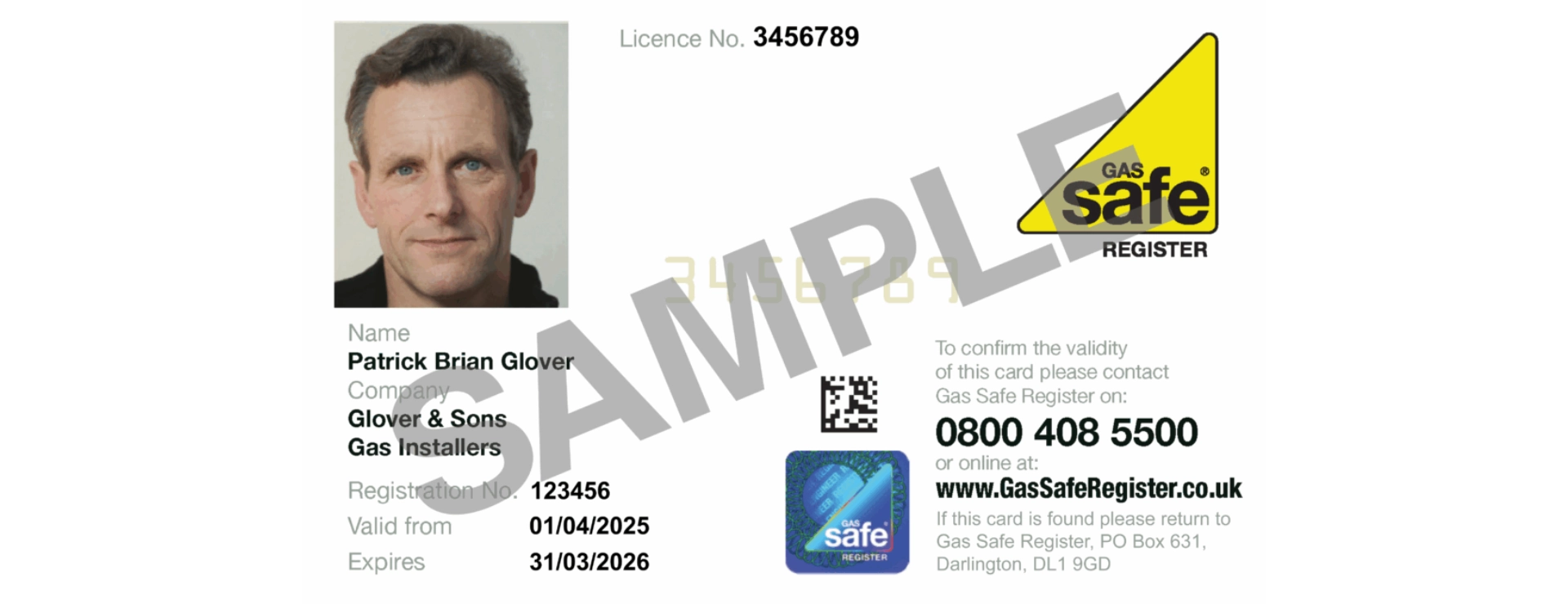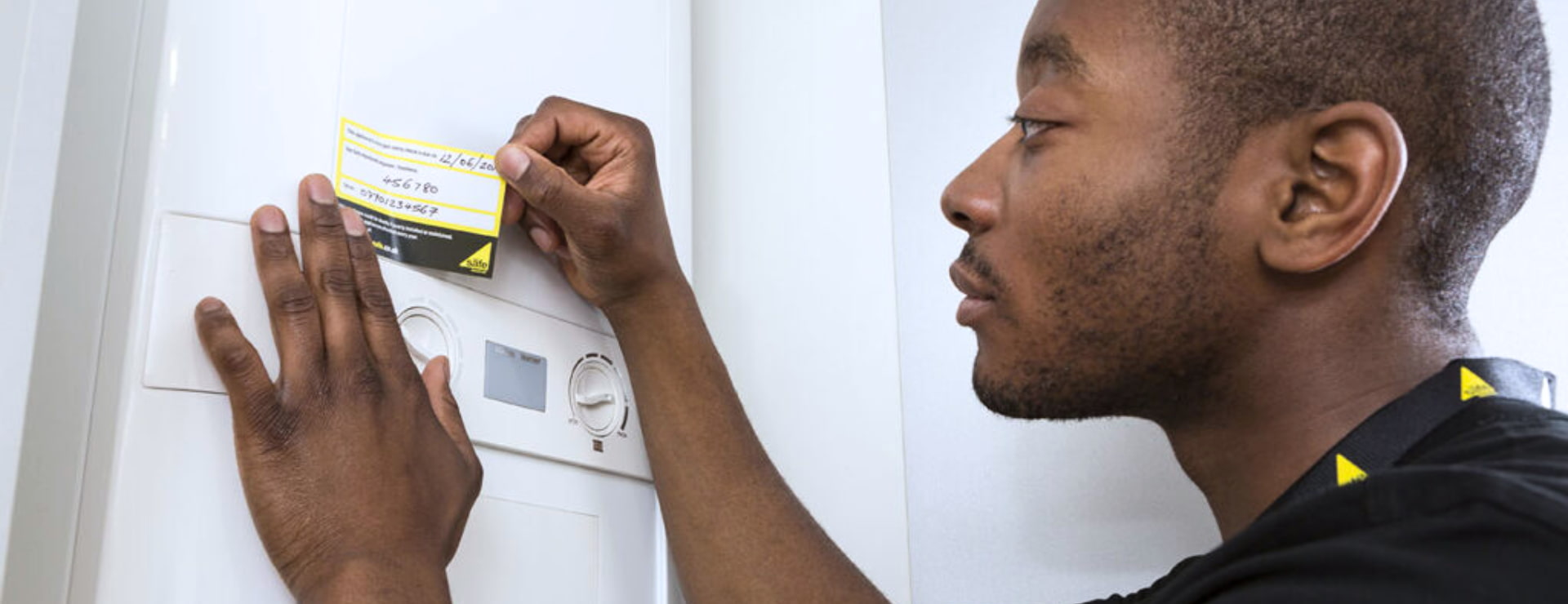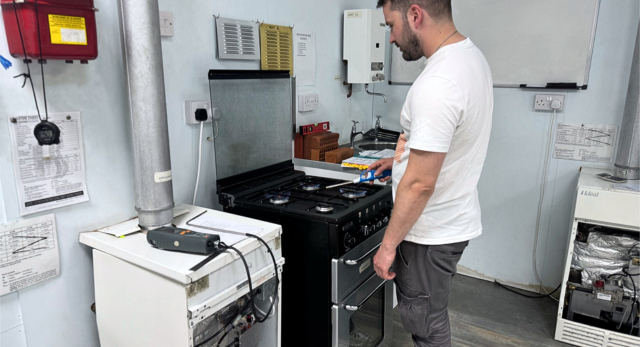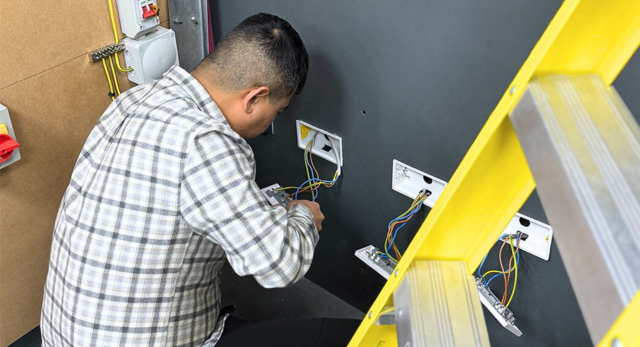Gas Safety Week is an annual initiative to raise awareness of gas safety and the importance of maintaining gas appliances. Gas Safe Register coordinates the week; they are the official list of gas engineers legally permitted to work on gas appliances. As a leading training provider, we at Logic4Training are proud supporters of this initiative.

Looking After Your Home, Friends and Family
Gas Safety Week 2025 takes place 8–14 September, led by the Gas Safe Register, the UK’s official registration body for gas work. Each year, the campaign brings together engineers, landlords, employers and the public to promote safe gas use, legal compliance and carbon monoxide (CO) awareness. The 2025 theme, “Looking after your home, friends and family”, puts the focus on protecting the people and places you care about. You can learn more and access official campaign materials via the Gas Safety Week hub, the pledge sign-up and the downloadable toolkit.
Why Gas Safety Week Matters
Unsafe or poorly maintained appliances can cause gas leaks, fires, explosions and CO poisoning. CO is odourless and invisible; symptoms can be mistaken for flu or tiredness, so prevention and early detection are vital. Gas Safety Week is a useful moment to:
- Remind households and businesses to book annual services and check engineer ID cards.
- Raise awareness of CO alarms and the signs of CO exposure (headache, dizziness, nausea, breathlessness).
- Encourage proactive landlord and employer duties across domestic and commercial sites.
- Share clear steps on what to do in a gas emergency, including the National Gas Emergency Service number 0800 111 999.

The Gas Industry by Numbers in 2025
25.6 million – dwellings in England (total housing stock, 31 March 2024).
21.2 million – households using a gas-fired main heating system
4.5 million – people potentially at risk heating with gas fires in winter
440 – average hospital admissions per year in England due to carbon monoxide poisoning (~51% accidental)
150,000+ – Gas Safe registered engineers (80,000+ businesses).
1.6 million – new gas boilers sold in the UK each year.
Gas Safe Register: Who It Is and How We Got Here
Gas Safe Register is the only official registration body for gas engineers and businesses in the UK. By law, anyone carrying out gas work must be on the Register and competent for the appliance/type of work in question. If customers remember CORGI, that was the previous scheme; it was replaced in 2009 to improve standards and enforcement.
In 2025, the scheme operator Capita had its contract renewed, running April 2025 to December 2029, a change that’s expected to bring further digital improvements for engineers and the public. See our update: Gas Safe Register: Capita’s £89m contract renewal.
Gas Safety for Employers and Facilities Teams
Employers have clear duties under health and safety law to ensure gas systems and appliances are installed, operated and maintained safely. Key actions include
- Use competent people: For any domestic-type or commercial gas work, use a Gas Safe registered engineer with the correct categories on their ID card.
- Maintain plant and appliances: Keep to manufacturers’ schedules; retain service records.
- Risk assess commercial plant: Check ventilation, interlocks and flame-failure protection; ensure safe systems of work for purging, light-up and shutdown.
- Train and brief staff: Make sure operators understand normal operation and emergency procedures.
- Emergency readiness: Display the 0800 111 999 emergency number; ensure staff know the steps (isolate supply if safe, ventilate, evacuate, call the emergency service).

Landlords, Letting Agents and Homeowners: Shareable Safety Checks
Gas Safety Week is a perfect time for engineers and agents to circulate simple, practical messages:
- Annual service/safety check by a Gas Safe registered engineer; always check the ID card categories.
- CO alarms: Fit an audible CO alarm (one per level, near sleeping areas); test regularly, alarms supplement servicing, they don’t replace it.
- Know the signs of danger: Sooting, staining, or a lazy yellow/orange flame indicate issues.
- Ventilation matters: Never block air inlets or flues.
- If you suspect a problem: Switch off the appliance, ventilate and follow the steps in What to do in a gas emergency.
Engineers can reuse Gas Safe’s ready-made assets from the toolkit to deliver consistent advice across email, social media and site notices.
Becoming (and Staying) Gas Safe Registered
If you’re new to the trade or upskilling:
- Get qualified and assessed: Complete your training and ACS (or an approved equivalent) in the appliances/categories you plan to work on.
- Register the business: Only registered businesses can carry out gas work legally; an engineer works under the business registration.
- Probation and monitoring: New registrations are subject to a short probationary period with additional monitoring; keep detailed job records and ensure at least one inspectable job is available.
- Keep evidence current: Maintain calibration certificates (e.g. combustion analysers), gas safety documentation and up-to-date CPD.
- Reassess every five years: ACS reassessment is required within 5 years to keep your competencies live. Book 3–6 months before expiry to avoid any lapse in categories; you must not work on a category once the relevant ACS has expired.
For a full walkthrough, including costs, categories and the ID card, see: Gas Safe registration: all you need to know.
What’s New or Notable in 2025
- Confirmed dates & theme: Gas Safety Week runs 8–14 September 2025, themed “Looking after your home, friends and family.” See Gas Safety Week and the pledge page.
- Join the campaign: Pledge support to receive updates and use the official assets and templates across your channels.
- Scheme delivery: Capita’s renewed contract (to 2029) underlines continuity for the Register and public-facing services, more in our roundup: Capita’s £89m contract renewal and Capita’s announcement.

Ready-To-Use Activity Ideas (engineers, landlords, employers)
Gas Safety Week is the ideal time to promote your business, reassure customers and demonstrate compliance. Use the week to educate customers and ensure their safety.
Engineers & small businesses
- Publish a week-long safety series: Share short, educational posts across your social channels and/or news page covering ID card checks, CO alarm testing, annual service reminders, emergency steps, and vent/flue best practice
- Offer a service + CO alarm bundle, or a fixed-price 5-point safety check for landlords and vulnerable households.
- Share a permitted before/after servicing story highlighting risk symptoms (e.g. sooting) and clear remedial steps.
- Run a live Q&A on social media: “How to check your engineer is Gas Safe” (show the card and categories).
- Make ID cards visible: Show your Gas Safe ID card on arrival and add a line to invoices/job sheets to ask to see your Gas Safe ID card.”
- Add a banner on invoices and job sheets linking to Find or check an engineer.
Facilities & H&S teams
- Carry out a plantroom audit: ventilation interlocks, emergency isolation, signage, flame-failure devices, purging procedure, calibration records.
- Verify maintenance logs and book overdue servicing to avoid peak-season bottlenecks.
- Re-brief shift teams on light-up/shutdown and emergency response; display the 0800 111 999 number prominently.
- For sites with accommodation blocks, ensure domestic-type appliances are covered by suitably qualified Gas Safe engineers.
Landlords & letting agents
- Email tenants a one-page safety checklist and how to spot CO symptoms.
- Audit Gas Safety Record renewal dates; book early.
- Promote a “Check the card” mini-campaign on tenant portals and noticeboards.
AI job losses & future-proofing
FAQs
Is Gas Safety Week only for households?
No. The campaign applies to workplaces, too. Employers must use competent people (Gas Safe registered engineers where applicable), keep appliances and flues maintained, and ensure safe operation.
What should I tell customers who still ask about CORGI?
Explain that CORGI was the old scheme; since 2009, Gas Safe Register is the legal standard. Show the Gas Safe ID card and check that the categories match the work.
How do I become registered?
Train, pass ACS, and register the business with Gas Safe. Expect a probationary period with additional checks.
What’s the number to call if I smell gas or suspect CO?
Call the National Gas Emergency Service on 0800 111 999. See: What to do in a gas emergency and National Gas emergency contacts.
Train or upskill with Logic4training
Whether you’re starting out or expanding your scope (e.g. moving from domestic to commercial), Logic4training delivers ACS initial and reassessment, Gas Safety Awareness and targeted upskill routes. We also support new entrants with registration guidance and probation-period planning. Speak to our team to discuss the best pathway for you this year.


